BMW has started production of hydrogen fuel cell systems for its next-generation BMW iX5 Hydrogen model, with the first vehicles set to hit the road for testing later this year.
Built at BMW’s competence centre for hydrogen in Munich, the FCEV powertrain consist of a fuel cell, two hydrogen tanks and a fifth-generation BMW eDrive electric motor.
It’s all used in tandem with a high-performance battery, in the architecture for the existing BMW X5. The German car maker will use individual fuel cells supplied by Toyota, with which BMW has collaborated on hydrogen powertrains since 2013.
BMW will then fit other components, including wiring harnesses, compressors, and anodes and cathodes.
Oliver Zipse, BMW chairman, said: "As a versatile energy source, hydrogen has a key role to play on the road to climate neutrality. And it will also gain substantially in importance as far as personal mobility is concerned.
“We think hydrogen-powered vehicles are ideally placed technologically to fit alongside battery-electric vehicles and complete the electric mobility picture… By commencing small-scale production of fuel cells today, we are demonstrating the technical maturity of this type of drive system and underscoring its potential for the future.”
The BMW iX5 Hydrogen produces a total of 368bhp. Around 167bhp comes from the bespoke hydrogen fuel cell system. BMW says its hydrogen powertrain will offer a “unique form of drive system for the premium segment.”
The BMW iX5 Hydrogen was tested earlier this year in winter conditions in Sweden and makes use of several new technologies, including a high-speed, turbine-powered compressor and a high-voltage coolant pump.
BMW says it has vastly improved the efficiency of the fuel cell system following years of research and development.
Frank Weber, BMW board member, said: "We have managed to more than double the fuel cell’s continuous output in the second-generation fuel cell in the BMW iX5 Hydrogen, while weight and size have both decreased drastically.”
Just 100 BMW iX5 Hydrogen cars will be produced initially. They won’t be sold but they will be used by drivers who will test them in everyday conditions in the US, Japan, Europe, China and South Korea.

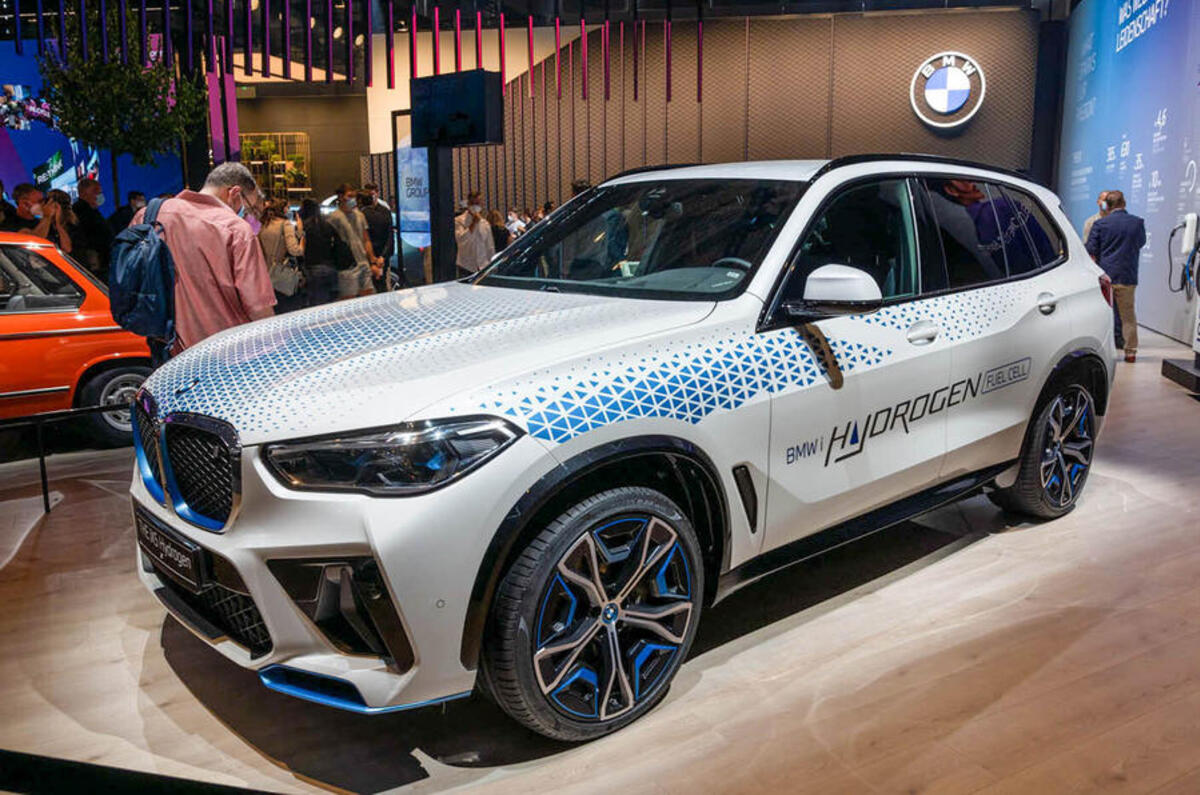
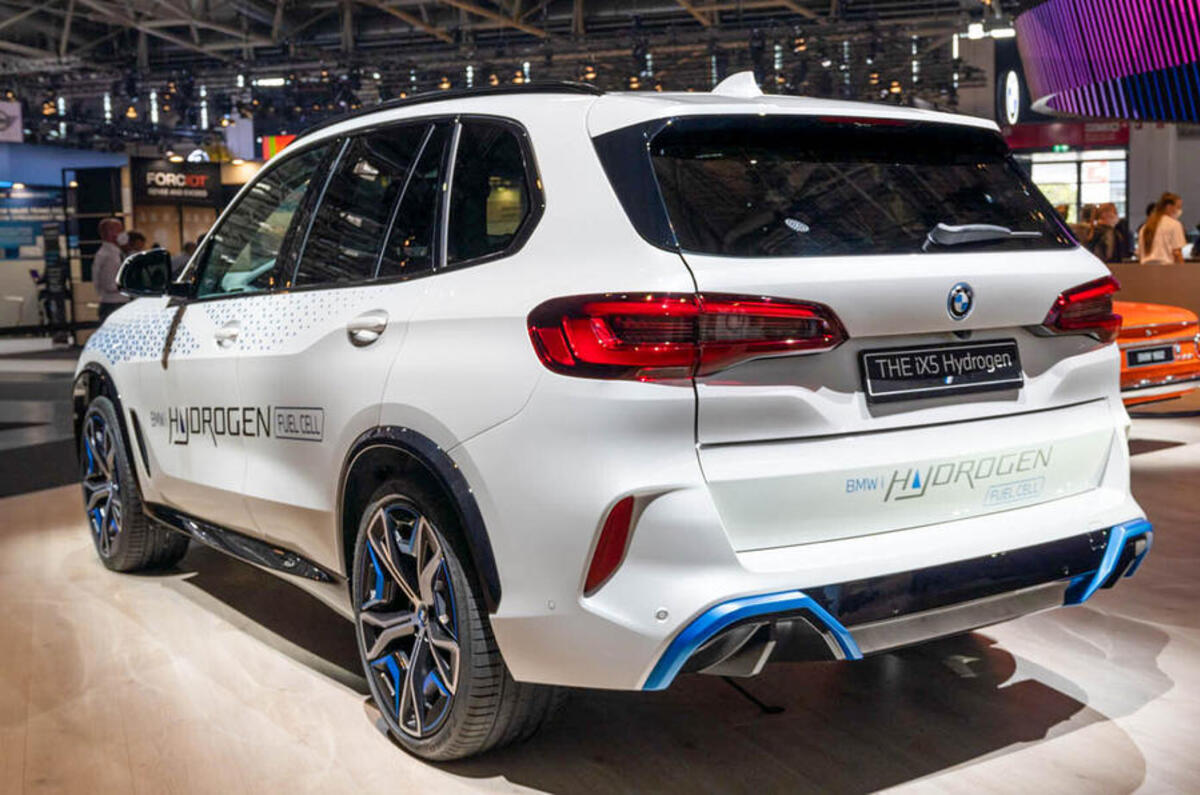
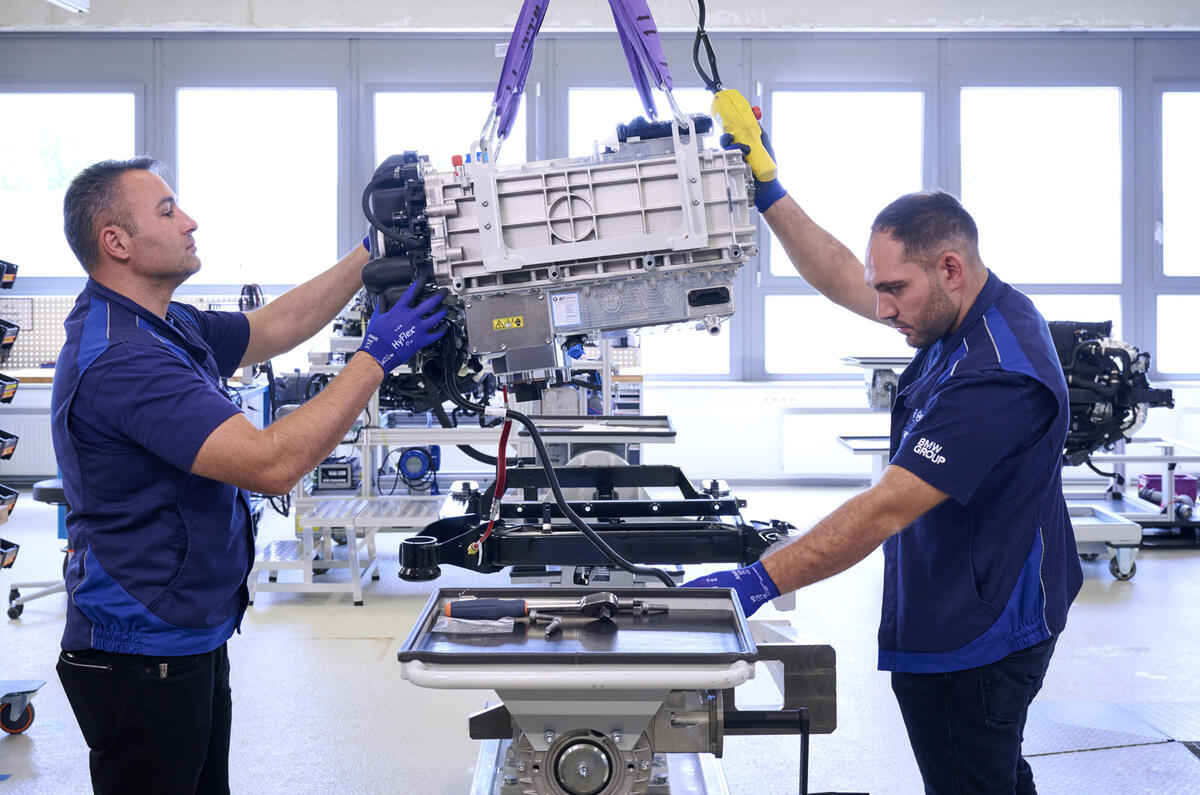
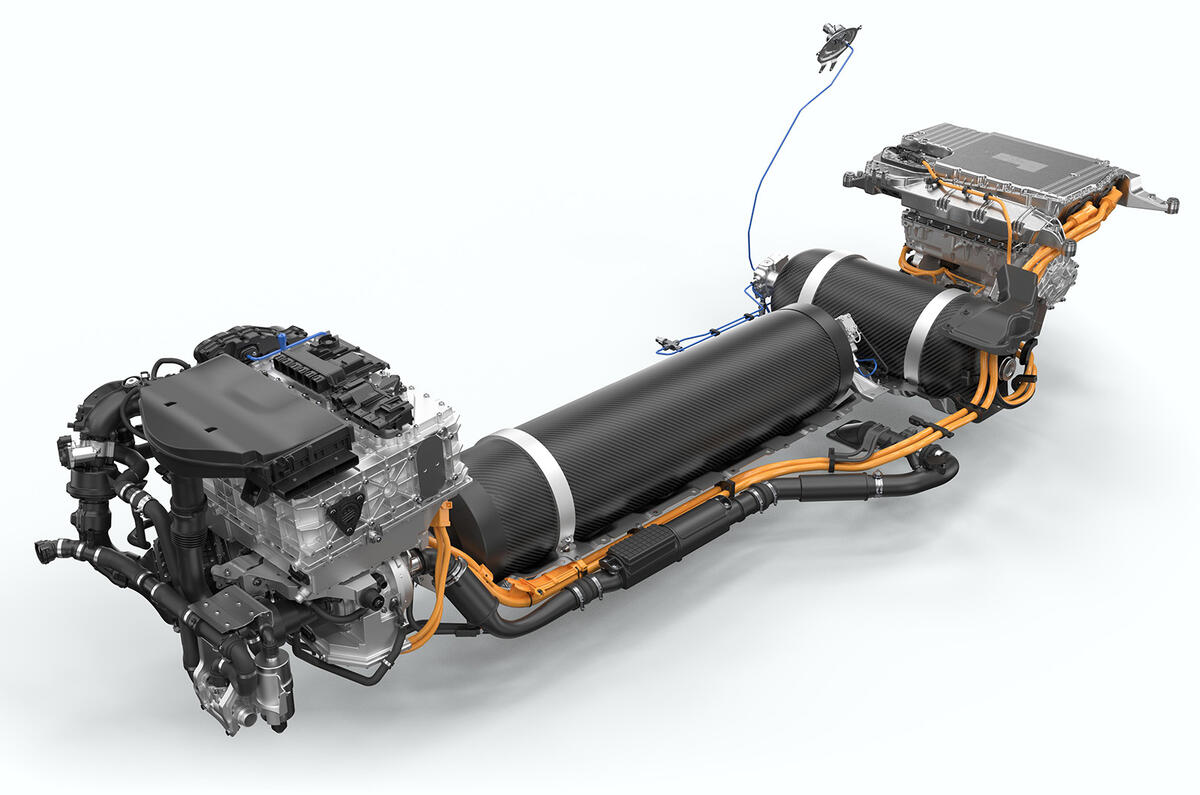
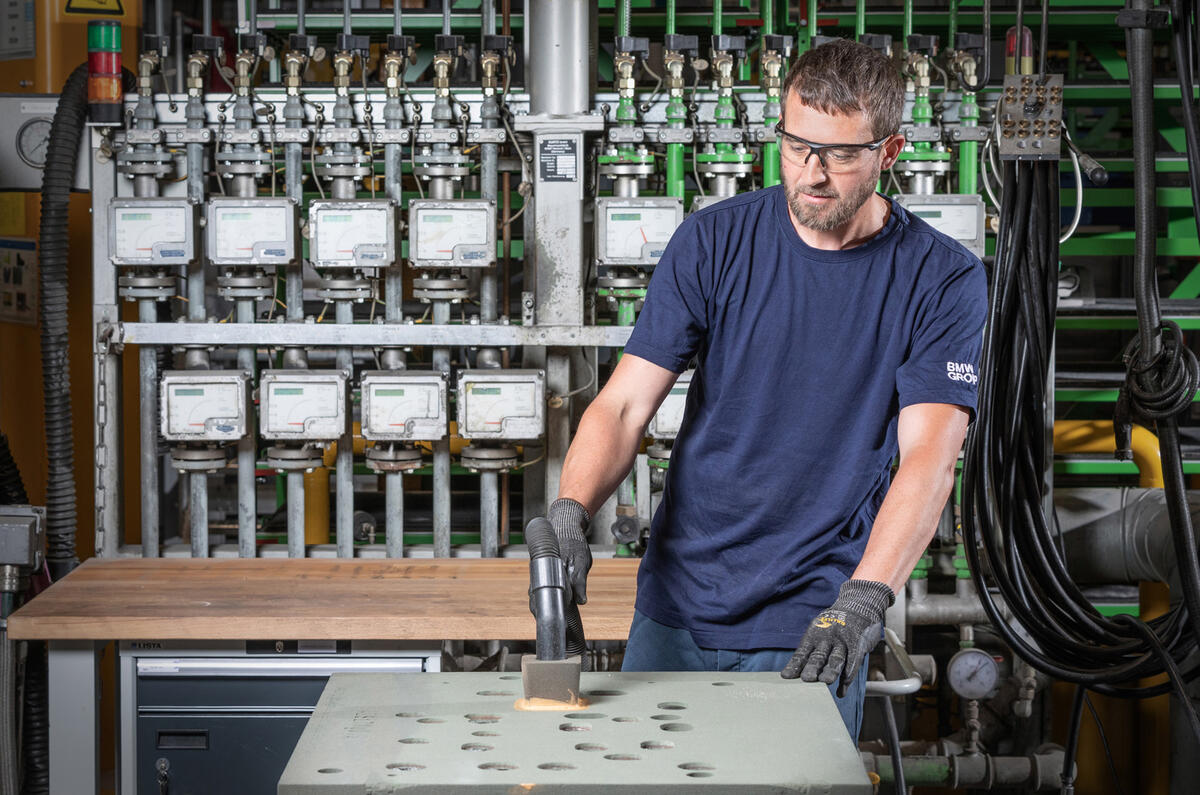
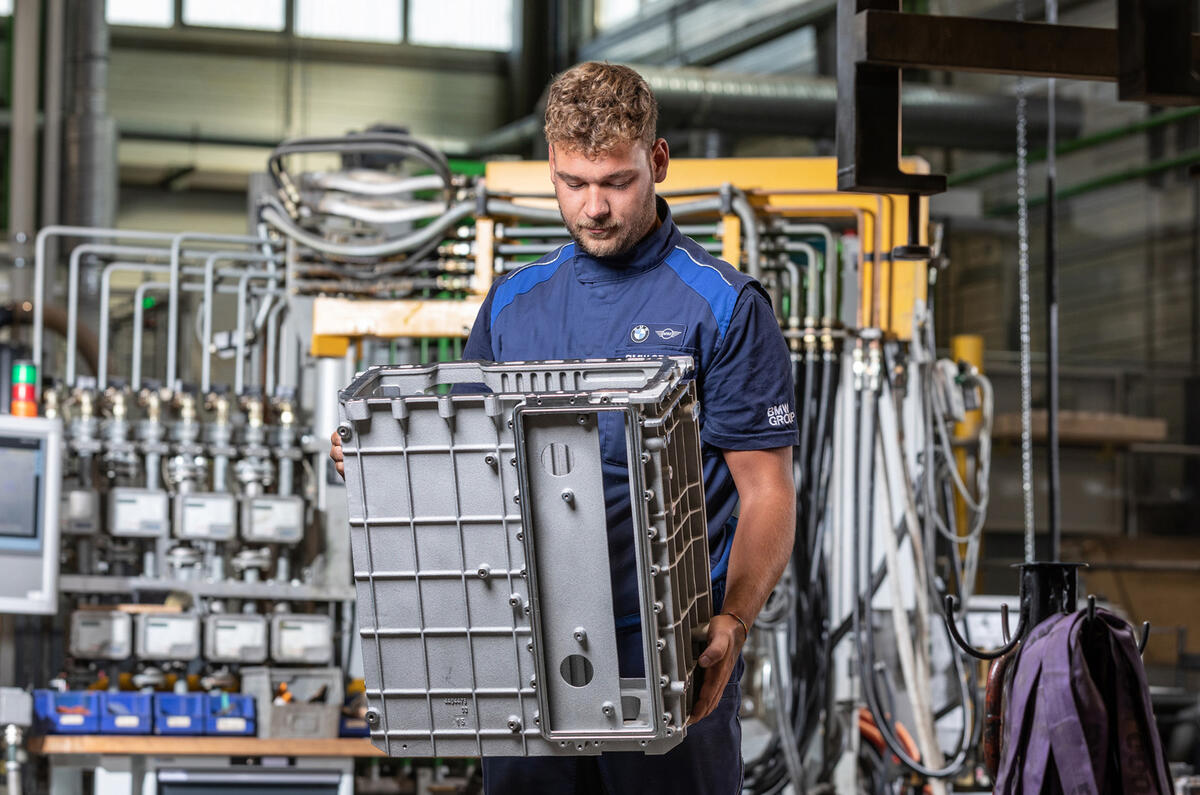
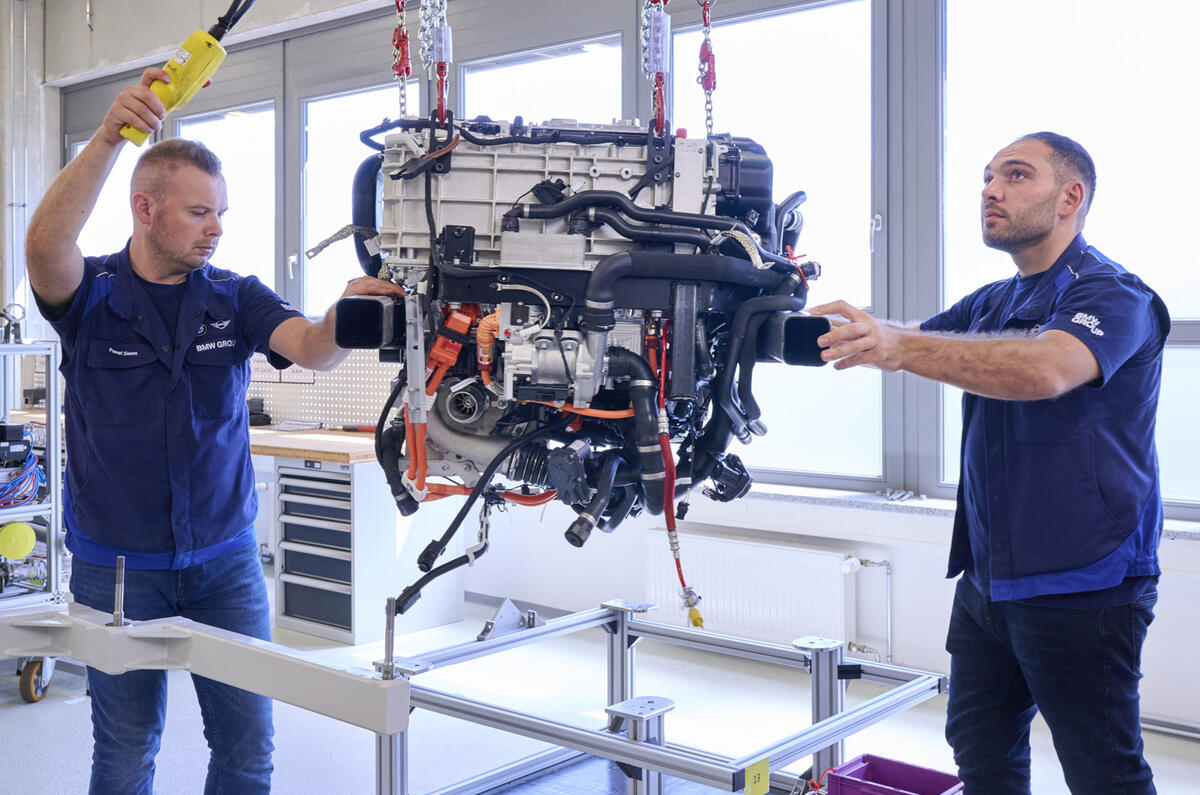
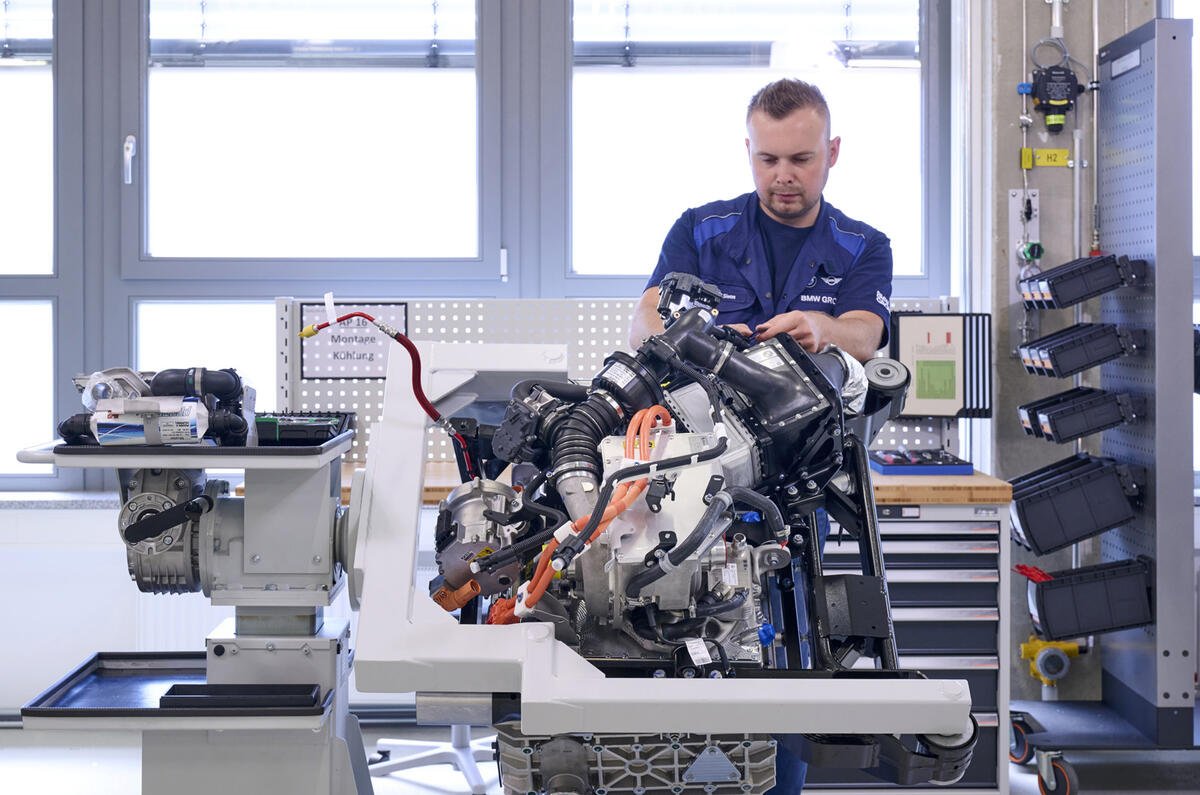
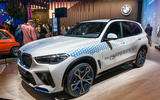
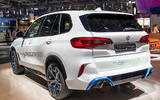
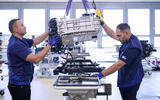
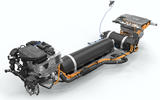
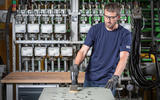
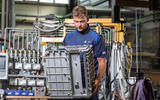
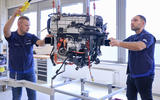
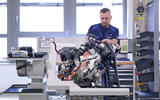


Join the debate
Add your comment
Headline doesn't match reality, again. Typical Hydrogen promotion rubbish
@xxxx, So, all these brands have wasted millions on a futile project that ultimately is a wastes of money?, would brands like this have wasted money if there wasn't something in it?
It's a question of hindsight. When such as Toyota started putting a lot of money into fuel cell research for cars, I'll be the first to agree it was a logical move - seemed at the time the only way to clean up exhausts. But that was 20 or 30 years ago, and as said below a lot has changed in that time. Battery powering for cars was generally hardly viable 30 years ago (milk floats, yes, standard cars, no), but battery tech has moved on so much since then that *NOW* it makes far more sense. Cost, charge rate, lifespan etc are all vastly better than only 10-15 years ago.
But for such as Toyota it now becomes a "sunk cost" issue. Do you write off all the money spent so far, or double down, spend more, and hope you can turn it round? Exactly the same with a gambler currently at a loss - do you walk away from the table, or carry on betting and hope your luck will change? And in the case of Toyota add not wanting to lose face, important in Japanese business?
My understanding is most auto brands don't see much if any future in hydrogen for cars. Conceivably for heavy trucks, and rail and shipping may be possible - but cars, no. Most (eg VW) are going down the battery route, and it's notable the huge investments being put into battery manufacturing plants and securing material supply chains. Advantages of a BEV include being able to charge at home, being (much) simpler and hence more reliable, and the running cost being inherently cheaper. (Make the hydrogen via electrolysis and like for like you need to start with about 3x as much electricity as just charging a battery. This apart from the expense of the electrolysis and compression plant an FCEV needs for fuelling. Compressing hydrogen to 700x atmospheric pressure is not trivial!)
It's notable that BMW is still only talking about very limited production and trials. I read into that they want to keep abreast of the basic technology, but in a very lukewarm fashion, and even Toyota have recently announced a big investment in a battery manufacturing plant in the US.
Nup. When hydrogen is available in many places and extremely cheap it will make a lot mroe sense got a car to carry 6kg of hydrogen than 600kg of battery. The transition to hydrogen a big job but it's undeerway and progressing well. I work in the lithium industry now but my next job will probably be in hydrogen.
Sounds wonderful...... but it's not so simple. Hydrogen itself may not weigh much - but the pressure tanks to hold it do! As a rule of thumb, about 20kg for each kg of H2. And that's best case - 700 bar carbon fibre tanks. (Expensive) So we're immediately up to about 125kg just for gas and tanks alone.
It doesn't end there. A fuel cell car also needs a pretty big battery of it's own. A fuel cell is good at giving a steady continuous output - not the big peaks that a car needs for acceleration and such as a hill. The battery is also essential to get regen. A fuel cell needs extremely pure air as well as hydrogen or the impurities poison the cell. Hence very sophisticated air purification. More expense, weight, and servicing.
Then there's control equipment. Valves and piping. (It's for 700 bar remember.) Oh! And the fuel cell itself! Which may start to give you an idea why such as Mirai is not lighter than such as a Tesla Model 3. Replace a 600kg battery with 6kg of hydrogen and your car will not miraculously become 594kg lighter!
And - typically battery packs can be made to the most convenient shape, often a flat rectangle which forms a nice flat floor. (Tesla are even looking to make them structural, to improve even more on the overall weight.) But pressure tanks really have to be cylindrical, which badly impacts interior design of an FCEV. (Just look at interior room/exterior dimensions on such as the Mirai.)
It's one thing to talk about hydrogen for such as shipping - let alone industrial processes - for cars it's at a big overall disadvantage to battery.
There are challenegs but they are far from insurmountable and lots of people are working on it. Hydrogen is the future for transport, not heavy metal batteries.
Jason, the trouble is that a lot of the challenges *ARE* insurmountable, and it's down to Laws of Physics - much less engineering. Take hydrogen storage. The only two viable options are liquefied at cryogenic temperature close to absolute zero, and under pressure. Physics dictates it's not possible to go much higher than 700 bar as even at that pressure the gas is becoming less compressible, Boyle's Law is breaking down. As for cryogenic storage for cars - no. The current problems with the latest NASA moonshot are largely down to fuelling problems with liquid hydrogen, it's a very, very difficult substance to handle. Even for NASA.
As a form of energy storage it will always be far less efficient than a battery. Other Laws of Physics dictate the inefficiencies that the round trip of electrolysis, compression, and a fuel cell must always have. There have been improvements in fuel cells, but very slow - slow such that it is falling further and further behind battery tech.
By "insurmountable problems" they are not such that a fuel cell car cannot be built - the Mirai proves it can. The problems are viability, and with battery now showing the basic problems of decarbonisation and no toxic exhaust can be solved that way, then why bother pursuing the hydrogen route? (Except maybe for shipping and possibly some rail usage.) Why?
As for "lots of people working on it", then in the automotive industry far, far fewer than there were. Apart from new start ups, such as VW are aggressively pursuing a shift to battery-electric, and they are not alone. Even Toyota, the previous big voice arguing for hybrid and hydrogen has recently been announcing big investments in battery manufacturing, which is seen as a huge shift - (the site doesn't allow me to post a relevant link).
At the moment BEV sales are constrained by production limits - manufacturers can sell many more than they can build. A huge amount of battery manufacturing plant is being built and due to start producing in the next 2-3 years, and as that comes on line expect to see BEV sales really shoot up. As for battery car weight, I already indicated why weight of battery alone doesn't make a comparable FCEV necessarily lighter - and weight is much less of an issue for an electric car anyway, braking via regen returns the kinetic energy to the battery. More weight gives regen.
Let the scoffing, tut tuts, and doubters have there say, but, if these two brands and I'm sure there are others, then I'm prepared to wait and see how the 100 cars built get on, yes, the production of Hydrogen along with the infrastructure being rapidly being put in a place are the stumbling blocks for Hydrogen powered cars being a part of decarbonisation, whether it succeeds or not, you've got to investigate the idea, what if it works though?
Quote: you've got to investigate the idea, what if it works though?
Trouble is, the idea of hydrogen and fuel cells for cars has been heavily looked into since at least the 1990's. At that time it seemed the only realistic possibility for cleaning up vehicle exhausts. (Batteries were considered, but 30 years ago were - rightly then - ruled out as just too expensive, with long recharge times.)
Since then, battery development has been such that prices have dropped by an order of magnitude, energy density is far better, and the ability to recharge more quickly is also vastly better. To the extent that they are now being sold by the 100,000's of thousands - whilst hydrogen cars are still in the "let's produce 100 in a year or so, for evaluation reasons"! It's a joke.
True, Toyota are producing the Mirai, but still only in relatively small numbers, and every sale is having to be heavily subsidised by Toyota. Fair enough when the numbers are small and they can use the profits from petrol/diesel car sales, but they won't be able to do that for large numbers. Toyota went heavily into a future they saw as hydrogen and hybrid, and can't now admit they called it wrong.